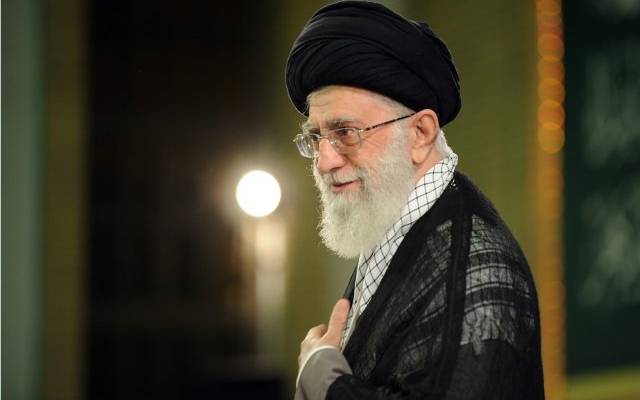Iran’s leader, Ayatollah Khamenei, would benefit personally from the nuclear deal by gaining access to resources that would allow him to bypass rivals, an investigative report reveals.
Iran’s Supreme Leader Ayatollah Ali Khamenei stands to benefit tremendously from the removal of economic sanctions on the Islamic Republic in the wake of the nuclear deal signed with the P5+1, according to a report by Reuters.
He would gain financially from the deal due to his close control of one of the most powerful and secretive organizations in Iran – Setad Ejraiye Farmane Hazrate Emam, or Setad, the 2013 investigative report explains.
The deal lifts US-imposed secondary sanctions, which have barred foreign banks that wish to operate in the US from dealing with Iranian companies, on Setad and the approximately 40 firms it owns or in which it has a stake, according to a Reuters tally based on annexes to the deal.
According to the agreement, Setad, a $95 billion empire, would be removed from the US treasury’s Specially Designated Nationals (SDN) list, enabling the conglomerate to open bank accounts abroad and procure financing for partnerships.
The delisting of Setad, which has little connection to Iran’s nuclear program but is close to Tehran’s ruling elite, feeds into US Republicans’ criticism that the deal would empower Iran’s hardliners and help fund its regional ambitions.
Article continues below…

Sign the Petition to Stop a Nuclear Iran
The US Congress must ensure that sanctions against Iran remain in force until the nuclear threat is completely eliminated.
I strongly oppose easing sanctions before the nuclear threat from Iran has been eliminated. Allowing Iran to enrich uranium without being subject to 'anytime, anywhere' inspections is extremely dangerous and unacceptable. Iran's nuclear program must be stopped.
See our Privacy PolicyFormer US officials told Reuters that Setad was just one of a slew of entities sanctioned because they were considered part of the Iranian government. Setad was particularly targeted, one official said, because Washington saw it as close to Khamenei and believed that the sanctions might induce him to back serious nuclear negotiations. With the nuclear deal reached, the Americans say it is now appropriate to remove those measures.
With stakes in nearly every sector of Iran’s economy, Setad built its empire on the systematic seizure of thousands of properties belonging to religious minorities, entrepreneurs and Iranians living abroad, according to the Reuters investigation.
Iranians who said their family properties were seized by Setad described in interviews in 2013 how men showed up and threatened to use violence if the owners refused to leave the premises at once.
Immense Boost of Power for Khamenei
The Reuters investigation found that Khamenei exerts exclusive control over Setad’s economic empire. He chooses its executives and oversaw the creation of a body of legal rulings that safeguarded Setad’s asset acquisitions since its inception in 1989.
Reuters found no evidence that Khamenei was personally enriched by Setad’s assets. However, through Setad, he has access to resources that allow him to bypass rivals and other branches of government.
“It allows the Ayatollah’s shady conglomerate to jeopardize the global financial system,” said Republican Senator Cory Gardner, who sits on the Senate Foreign Relations Committee. “These are bad actors who are now receiving the benefit of the bargain from the United States.”
Setad was originally sanctioned by the US Treasury in June 2013. The conglomerate “produces billions of dollars in profits for the Iranian regime each year,” said David Cohen, then the Treasury’s undersecretary for terrorism and financial intelligence, at a Senate banking committee hearing that year.
Setad, Cohen said at the time, controls “massive off-the-books investments” hidden from the Iranian people and regulators.
“The relationship between the government of Iran and the US government is changing,” a Treasury official told Reuters. “It makes a good deal of sense to have entities that are closely associated with the government of Iran to have their relationship with the US government change too.”
One Setad firm already appears to be moving to take advantage of the deal, Reuters noted. Ghadir Investment Company, which the US Treasury identified as a Setad-linked firm, signed a 500 million euro ($565 million) contract with the engineering unit of Finmeccanica, a spokesman for the Italian defense group said in August.
By: United with Israel Staff
